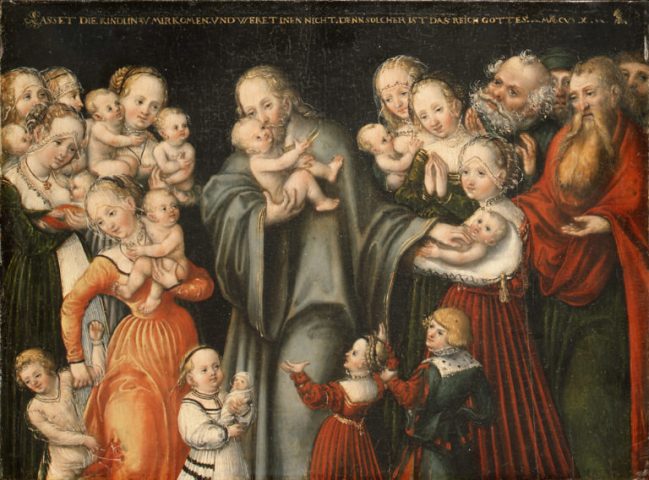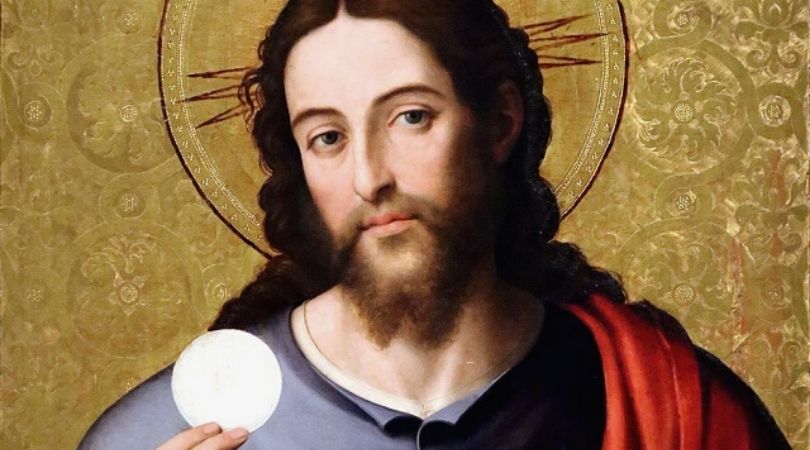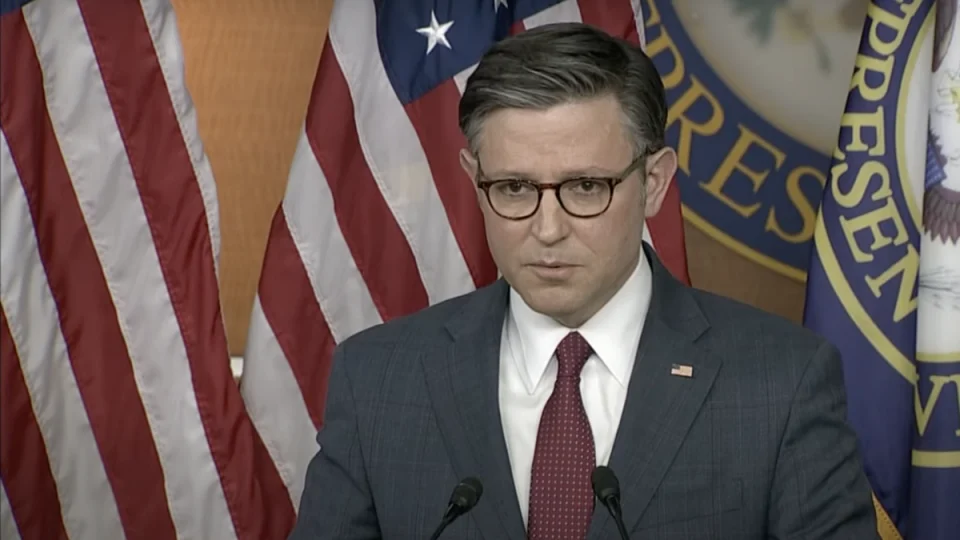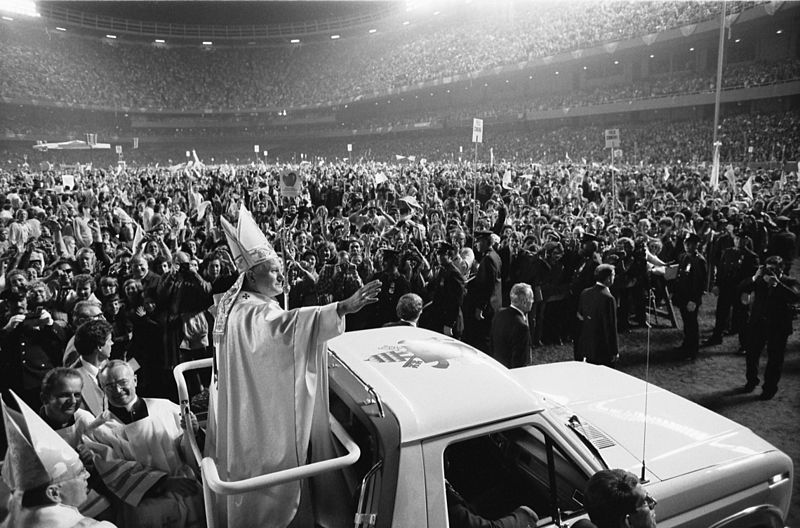Painting: Christ Blessing the Children by Lucas Cranach the Younger, c. 1550 [The Met, New York]
By Robert Royal, The Catholic Thing, Nov. 20, 2017
![]() The U.S. Conference of Catholic Bishops (USCCB) held its annual Fall meeting in Baltimore last week. There was good news on several fronts: Kansas City Archbishop Joseph Naumann, longtime defender of the unborn, was elected head of the pro-life committee; the bishops chose (in descending order), Bishop Robert Barron, Archbishop Chaput, Cardinal di Nardo, and Archbishop Gomez – all serious characters – as delegates to next year’s Synod on “Young People, Faith, and Vocational Discernment.” (TCT will, Deo volente, be there). Those chosen for other leadership posts were equally solid. All in all, a good week’s work and nothing earth-shaking, which is all to the good these, and most, days.
The U.S. Conference of Catholic Bishops (USCCB) held its annual Fall meeting in Baltimore last week. There was good news on several fronts: Kansas City Archbishop Joseph Naumann, longtime defender of the unborn, was elected head of the pro-life committee; the bishops chose (in descending order), Bishop Robert Barron, Archbishop Chaput, Cardinal di Nardo, and Archbishop Gomez – all serious characters – as delegates to next year’s Synod on “Young People, Faith, and Vocational Discernment.” (TCT will, Deo volente, be there). Those chosen for other leadership posts were equally solid. All in all, a good week’s work and nothing earth-shaking, which is all to the good these, and most, days.
Watching these events unfold made me recall from the misty corners of memory the time when I briefly wrote a “USCCB Watch” column in the early years of Crisis magazine. In the 1980s, Reagan was president, JPII was pope, and Margaret Thatcher was prime minister in England. And the bishops’ conference – then differently structured and badly listing to port, to a degree hard to imagine now – waded in trying to develop a model for U.S. nuclear policy; a bit later, the bishops tried their hand at economic reform; and staff were for a long time after even known to issue statements on questions like homosexuality without their being fully vetted by the bishops.
In my judgment, these efforts had little real effect. The United States continued to press the Soviet Union, causing its collapse; the American economy boomed after Reagan’s pro-market reforms and the tech revolution; homosexuality has been normalized, though not because of an uncertain trumpet at the Conference.
Those tussles at least clarified what bishops can and cannot speak about, usefully. Michael Novak organized a group of us who presented alternatives to the bishops’ statements on nukes and the economy. But for me, the most memorable moment in all of those controversies was an exchange between a prominent Dutch philosopher and Fr. Brian Hehir at one of our meetings:
“Fr. Hehir, the work you have produced is quite serious. But I don’t see why the bishops should put their moral authority behind this particular set of proposals when there are a dozen others equally ethical. It would have been better to stick to moral and social principles.”
“Well, if we did that, it would have been a very short document.”
Indeed, and the bishops haven’t much tried large-scale policy statements since those days. They’re commenting on tax reform just now as if it were a straightforward moral question – though by nature all such proposals will have positives and negatives, hard choices and tradeoffs, for everyone.
The interest in this year’s bishops meeting for many who follow Church affairs closely was the possible election of Cardinal Cupich to lead the pro-life committee. Cupich was a personal choice of Pope Francis for Chicago – and many think he speaks for him. Some have read his defeat as a vote against Francis’s reform efforts, but that is only partly the case. Because he was an odd candidate, especially compared to Archbishop Naumann. In Spokane, he had actually asked priests, who were gung-ho about opposing abortion, not to pray in front of clinics. In Chicago, he has revived the “seamless garment” approach that one of his predecessors, Cardinal Bernardin, had popularized in the 1980s. That approach says there are other life questions – war, poverty, inequality, racism, etc. that are also part of a “consistent ethic of life.”
And so they are – and no thinking person, let alone a Catholic – has ever denied it, except when the seamless garment has been used as a cloak to hide Catholic politicians who support abortion – sad to say, almost always Democrats.
Numbers don’t always tell the whole tale, but: 732 people were murdered in Chicago in 2016, a horrible death toll. That’s about an average day’s work for Planned Parenthood – and they “only” do one-third of the abortions in America. Estimates vary widely, but let’s say 200,000 people (a generous figure) have died in Iraq, that too is terrible. America aborts five times that many children every year. If 1,000,000 yearly were being killed by urban gangs or in an American war, there would be rioting all over the country. It’s only right to be agitated first about that slaughter of the innocents, without losing sight of other matters.
The selections for the Synod on the Youth, however, may reflect a greater wariness among American bishops about the accompaniment-discernment-mercy side of the current papacy. All four are intelligent, orthodox, sensitive men (and still must be confirmed by Rome as delegates), but it’s fair to say that none of them would agree – as Cardinal Cupich asserted recently – that Fr. James Martin is the best evangelizer of young people in America. It’s more likely that they would want to ask questions such as: what’s the attraction and where is the evangelizer leading them?
A wise priest just wrote me that, given the state of young people in our society, the central question now is, “How can they be brought to Christ and his Church without a lot of their world being destroyed?” You can talk with young people – or “listen” as some prefer – about environment, poverty, inequality, sex, war, etc., but these are, so to speak, all on the horizontal axis. The world outside of the Faith is already treating such questions, even sex to a certain degree, to judge from recent events.
Jesus is something different. It’s not simply a linguistic convention that we talk about the depths and heights of human experience. There is something that we sense deep within us and high above us that – truth be told – gives the fullest meaning and direction even to our worldly concerns. The big political questions, whether in the 1980s or 2017, may seem more important, but they wither and fade. Then there’s Genesis: “Your father’s blessings are greater than the blessings of the ancient mountains, than the bounty of the everlasting hills.” (49:26)
_____________________
Robert Royal is editor-in-chief of The Catholic Thing, and president of the Faith & Reason Institute in Washington, D.C. His most recent book is A Deeper Vision: The Catholic Intellectual Tradition in the Twentieth Century, published by Ignatius Press. The God That Did Not Fail: How Religion Built and Sustains the West, is now available in paperback from Encounter Books.







